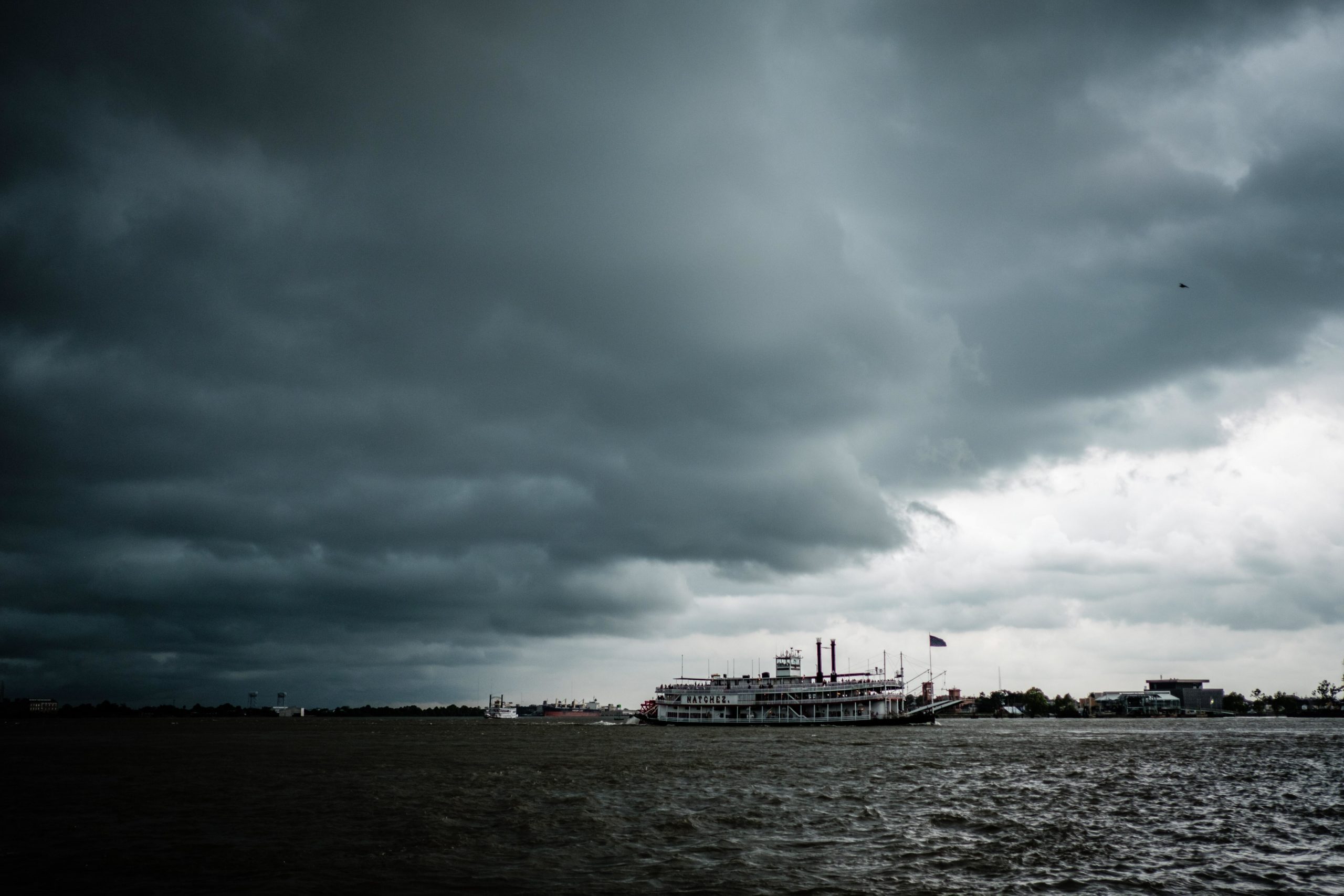As climate catastrophes continue ravaging communities across the globe, there is no time to waste. We must unite and demand an end to the fossil fuel and deforestation economy creating climate chaos; and we need to help those bearing the brunt of these disasters today.
At noon on August 29th, the 16th anniversary of Hurricane Katrina, Hurricane Ida made landfall in Louisiana. As a Category 4, Ida is the strongest hurricane that coastal Louisiana has seen since Katrina. The storm whipped into New Orleans with 150mph winds, and as much as 20 inches of rainfall. Trees have been uprooted, roofs have been torn off of houses, and power has been wiped out for more than a million people across the state, and over 100,000 in neighboring Mississippi.
The hurricane arrived earlier than expected and its rapid increase in strength left state officials scrambling. Meanwhile, COVID cases in Louisiana are at their highest since the pandemic started — storm victims are arriving at hospitals that are already at near capacity. One hospital in Galliano, Louisiana had a portion of its roof ripped off by the storm.
As we already know, climate change is resulting in more frequent and more intense weather events. Researchers say Hurricane Ida intensified as rapidly as it did because of the unusual warmth of the Gulf of Mexico. With higher surface water temperatures, winds become stronger and increased water vapor in the atmosphere leads to heavier rainfall.
The organizations listed below are taking donations to help the on-the-ground efforts in Louisiana. Many of these funds are specifically for BIPOC communities who are disproportionately impacted by climate disasters such as this one. Note: this list is not comprehensive.
Imagine Water Works
Imagine Water Works is a community-based organization focused on “climate justice, water management, and disaster readiness and response.” They are led by Native, Creole, queer, and trans residents of New Orleans and, through their Mutual Aid Response Network, are currently allocating relief funds to their communities.
➤ To donate click here: Hurricane Ida Relief Fund
Gulf Coast Center for Law & Policy
Based in Slidell, LA and formed in the aftermath of Hurricane Katrina, the Gulf Coast Center for Law & Policy (GCCLP) is a non-profit, public interest law firm and justice center. GCCLP works to improve climate policy and legal processes for disaster recovery for communities of color on the frontlines of climate change.
➤ Donate to their relief fund here: GCCLP Disaster Relief Fund
United Houma Nation
United Houma Nation (UHN) is a non-profit organization representing 17,000 Indigenous tribal members along the coast of Louisiana. As one of the communities hardest hit by the hurricane, UHN is working to distribute storm relief to tribal members in need.
➤ Donate here: UNH Donate
The Partnership for Inclusive Disaster Strategies
The Partnership is a disability-led organization working for disability rights and equal access. In response to Hurricane Ida, they are distributing emergency relief to storm-impacted disabled people.
➤ Donate here: Disability and Disaster Resource Hub
Southern Solidarity
Southern Solidarity is a volunteer-run, community-based organization working to distribute food, medical resources, and basic needs supplies to houseless citizens of New Orleans. They are currently focusing on hurricane relief for the unhoused.
➤ Donate to the fund here: Southern Solidarity
Another Gulf is Possible
Another Gulf is Possible is a grassroots, women-of-color led organization working all along the coast to advocate for sustainability, equity, and justice. Their “Just Ida Recovery” fund is distributing aid to Indigenous, Black, and brown frontline communities, as well as to groups and families who do not have capacity to access online donations.
➤ Donate here: Just Ida Recovery Fund
El Pueblo NOLA
El Pueblo is a Latinx-run organization focused on COVID relief in the New Orleans area. While they are not collecting funds specifically for Hurricane Ida relief, they are expecting an influx of COVID cases due to hospitals being at full capacity.
➤ Donate here: El Pueblo Support













